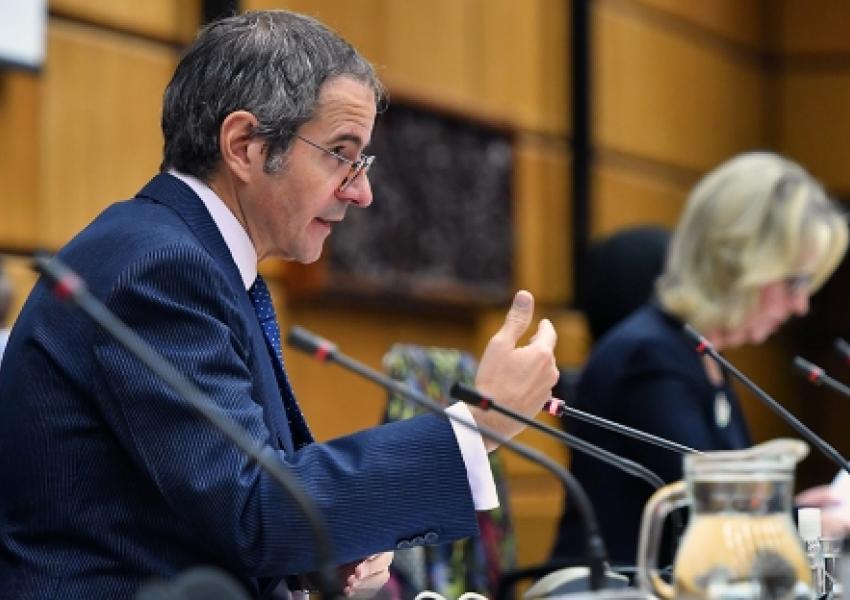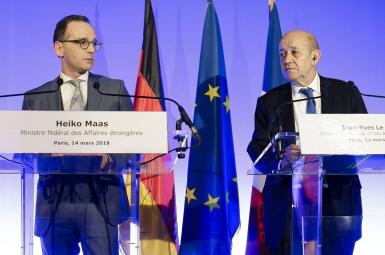
E3, Russia Urge Iran To Comply With Nuclear Deal
In a statement released on Thursday November 19, France, Germany and the United Kingdom (known as the ‘E3’) expressed concern at Iran’s nuclear activities including the enrichment of uranium above 3.67% and its growing stockpile of low-enrichment uranium. The E3 called on Tehran to return to compliance with its 2015 nuclear deal with world powers and to answer all outstanding queries over past undeclared nuclear activities.
Iran began a series of graduated steps beyond the nuclear agreement, the JCPOA (Joint Comprehensive Plan of Action), after United States President Donald Trump withdrew from the deal in 2018 and imposed draconian sanctions that sent the Iranian economy into recession. The Europeans have called on both the US and Iran to respect the terms of the JCPOA but have proved unable or unwilling to offer Tehran effective mitigation of the US measures.
“We continue to be extremely concerned by Iran’s actions, which are hollowing out the core nonproliferation benefits of the deal,” the E3 statement said. “Advancements on Research and Development have irreversible consequences.”
The Europeans also called on Iran to answer queries raised in a recent report by Rafael Mariano Grossi, Director-General of the International Atomic Energy Agency (IAEA), the United Nations body that monitors and inspects Iran’s atomic facilities.
“Paragraphs 33-35 of the Director General’s report clearly state that Iran’s responses to questions on the presence of uranium particles of anthropogenic origin detected at an undeclared site, which were provided by Iran after very significant delays, were ‘not technically credible’,” the statement said. The E3 statement said it was of “critical importance” that Iran promptly provide a full and accurate explanation for this and other safeguards-related issues raised by the IAEA.
On Wednesday, Grossi asked that Iran explain the origin of the uranium residue found almost two years ago in an undeclared site reportedly exposed by Israel. The IAEA visited the site in 2019 and took samples that showed traces of “isotopically altered particles of low enriched uranium.” Since then the UN nuclear watchdog has sought answers from Tehran.
On Wednesday Washington’s envoy to the IAEA, Jackie Wolcott, in a virtual address to the IAEA Board of Governors described Iran’s actions in expanding its nuclear program as “transparent attempts at extortion.” She said the US had made clear that such actions would “neither resolve the current impasse nor bring Iran sanctions relief.”
Russia, a JCPOA signatory, this week urged Iran to maintain cooperation with the IAEA even during the Covid-19 pandemic. Mikhail Ulyanov, Russian ambassador to the IAEA, said on Wednesday that this was “a key element of international efforts to preserve the JCPOA amid US attempts to undermine it.”
Ulyanov called on the US to return to its obligations under UN Security Council Resolution 2231, which endorsed the JCPOA, and lift its unilateral sanctions against Iran. “We’d like to reiterate - implementation of UNSCR 2231 continues, no other decision has been made by the UNSC,” he was quoted as saying in a tweet on Wednesday from the Russian Mission to the International Organizations in Vienna.








